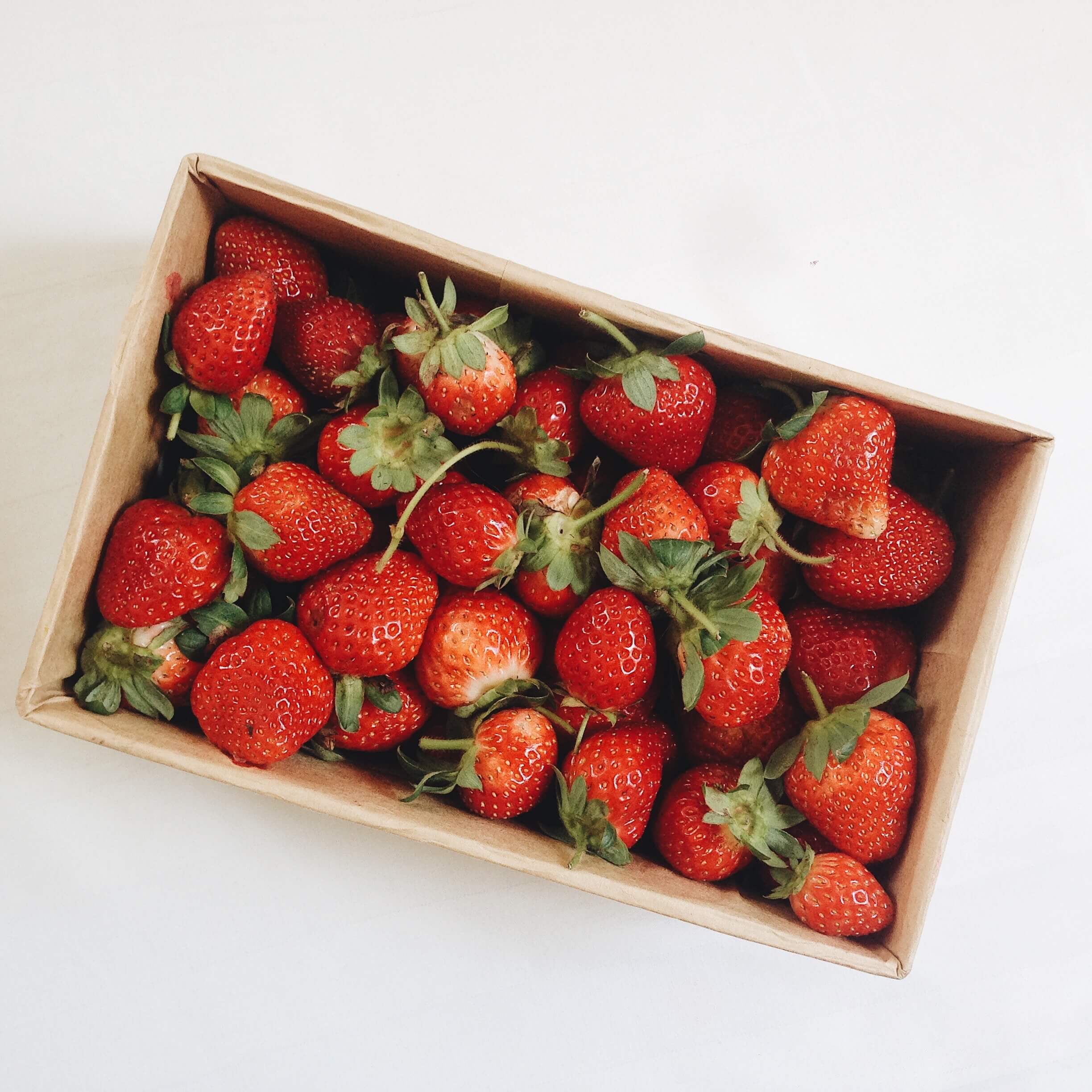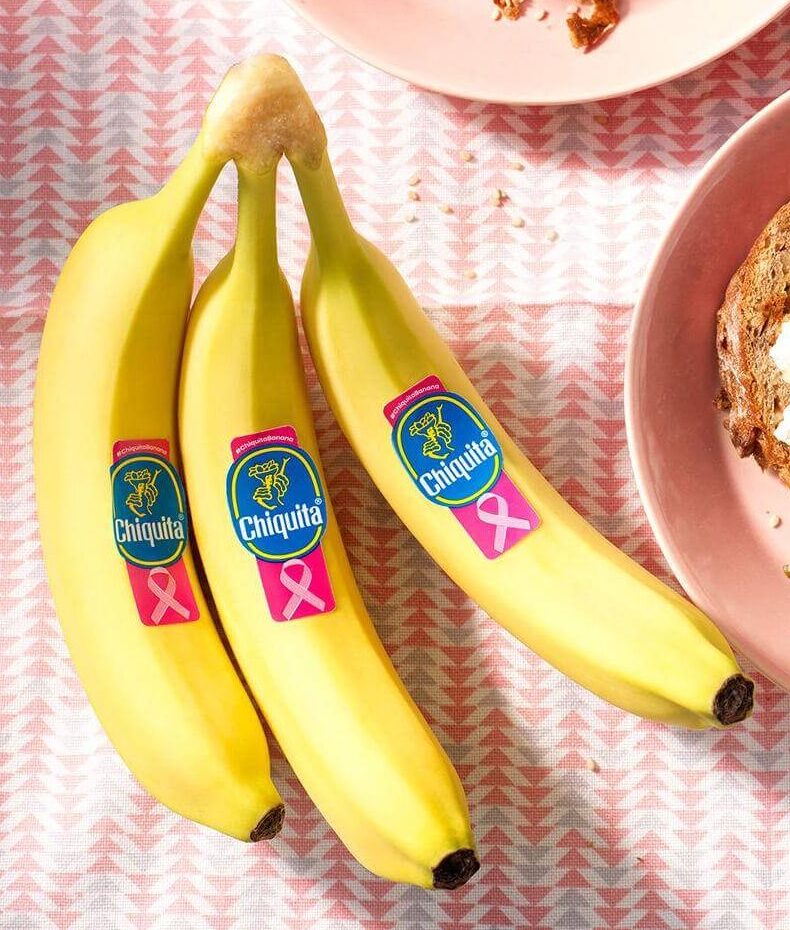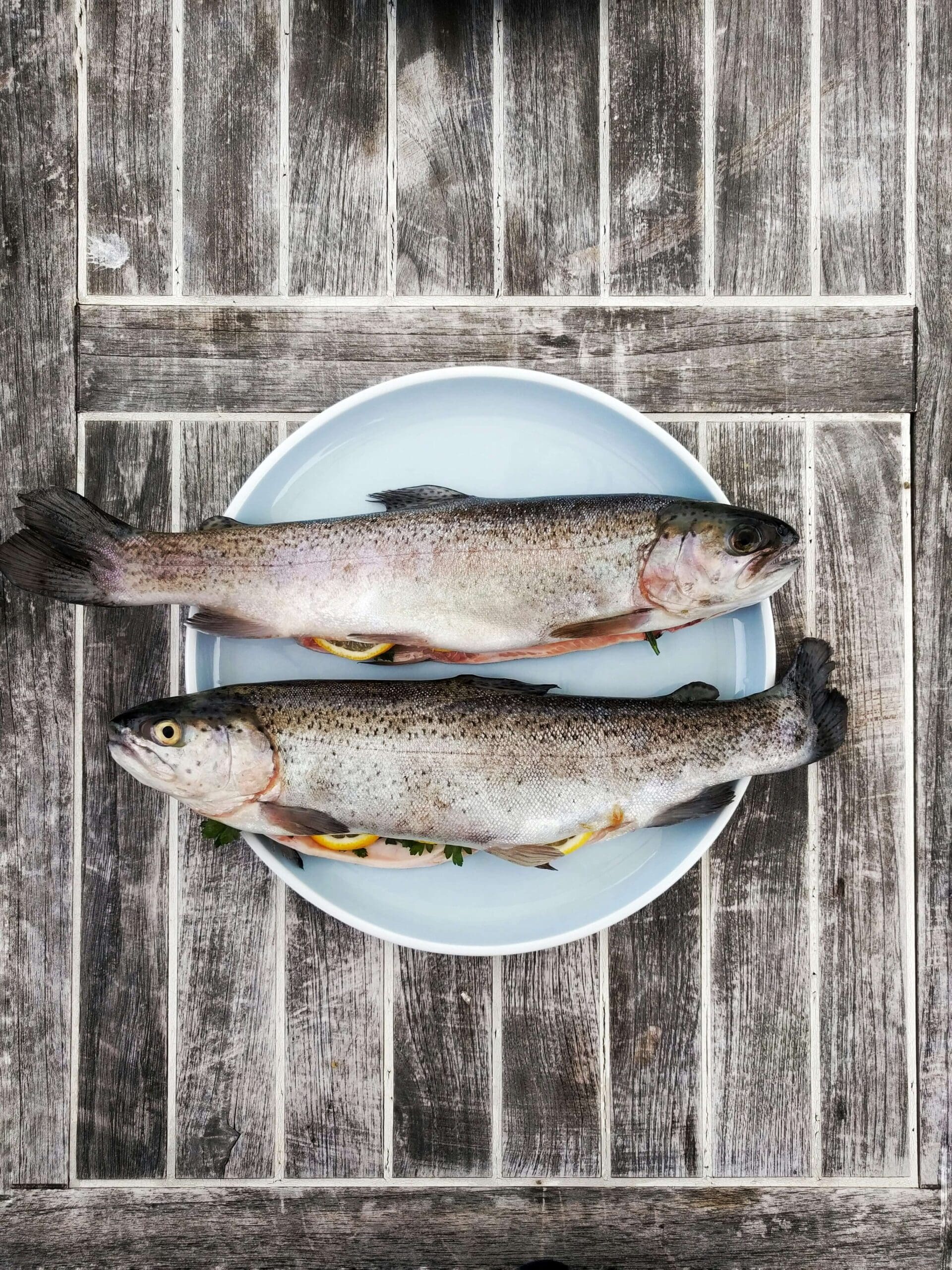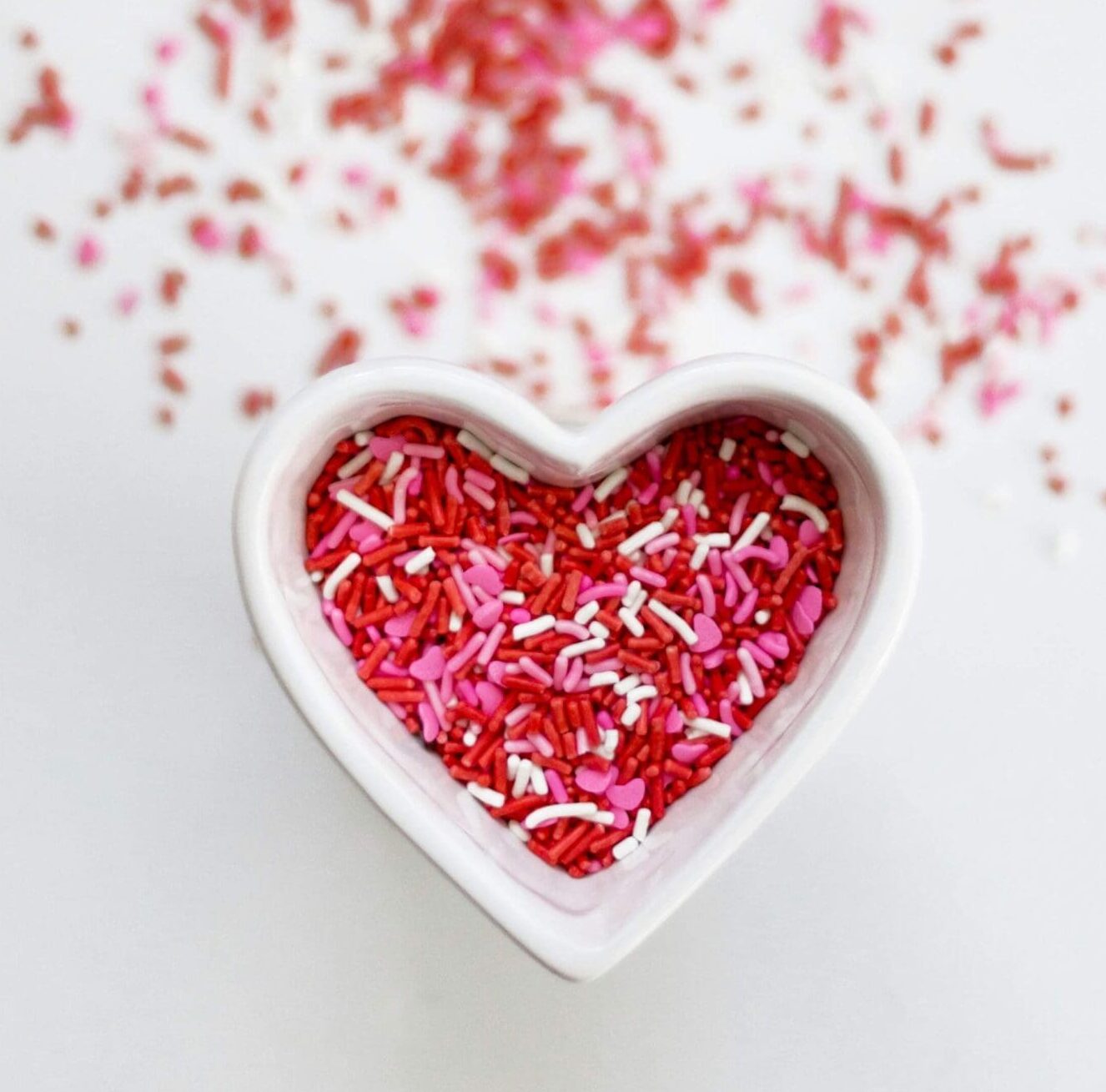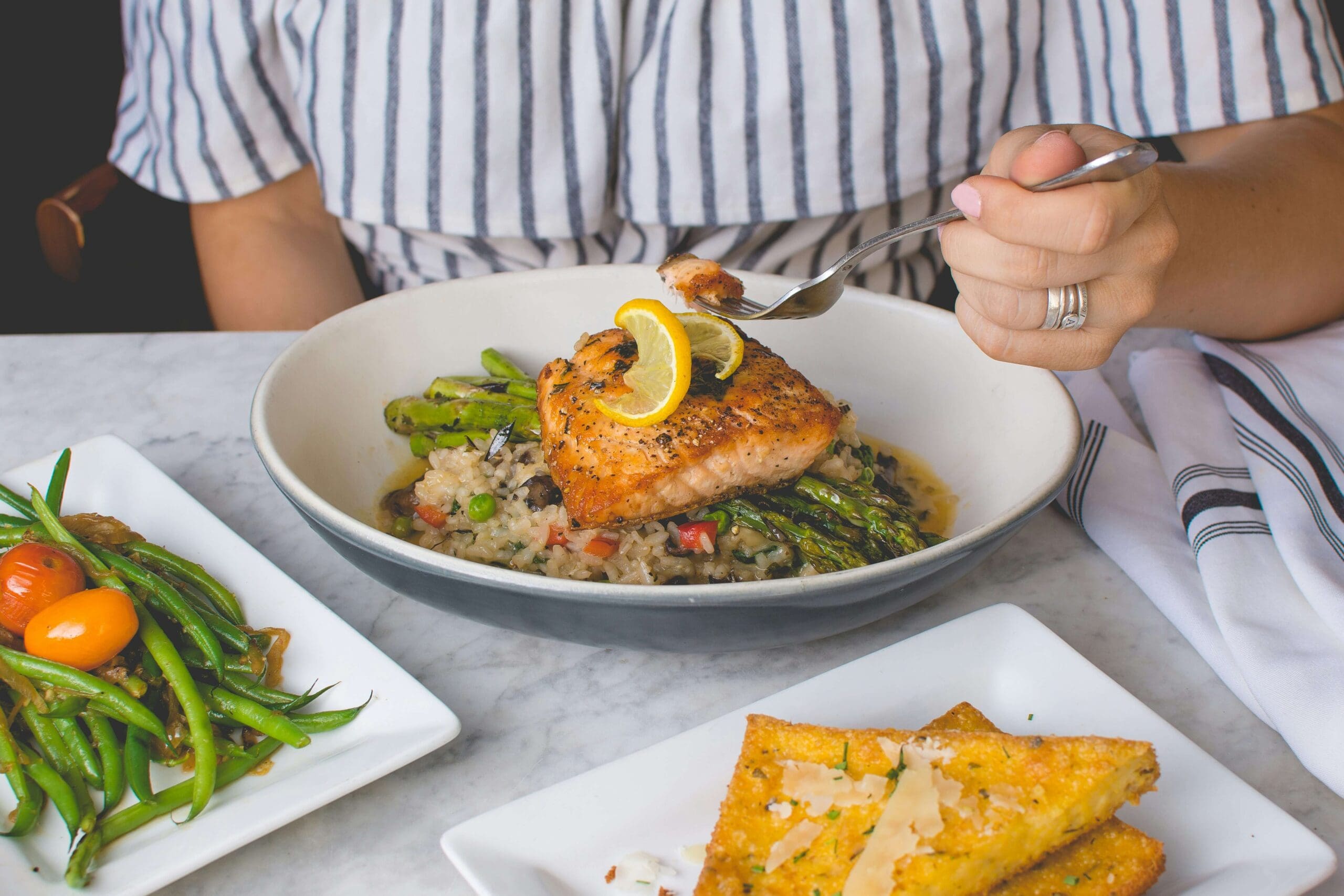You want to reduce your cancer risk, but the internet is full of confusing advice. One site says to eat this, another warns against that. As your oncology dietitian, I understand how overwhelming it feels when you’re trying to make the right food choices for your health.
The good news? Science gives us clear answers about which foods genuinely support cancer prevention. These are not miracle cures or magic bullets, but they are powerful tools in your cancer prevention toolkit.
In this guide, I will walk you through the top cancer-fighting foods that I share with my clients in the cancer coaching program, plus show you exactly how to incorporate them into your daily life.
You will discover which foods to prioritize, which ones to limit, and how to build meals that protect your body while still tasting delicious.
Get Your Free Clean Scan Plan!
Before we dive in, grab your Clean Scan Plan, it lays out the exact nutrition and lifestyle strategies proven to lower cancer risk and support long-term health.
The Top 10 Cancer-Fighting Foods You Should Eat
Based on extensive research and my work with over 1,000 cancer survivors, these are the best foods for cancer patients and anyone looking to reduce their risk. Let me show you exactly what makes each one powerful and how to enjoy them.
1. Berries (Blueberries, Strawberries, Raspberries)
Berries are incredibly powerful cancer reducing foods. Blueberries increase antioxidant activity in your blood and may help prevent DNA damage. The anthocyanins that give berries their beautiful colors are among the most potent antioxidants available.
In my programs, I show clients how simple foods like berries can reduce inflammation and calm their fears about recurrence without giving up foods they love.
One of my survivors told me she started adding just half a cup of mixed berries to her morning yogurt. Six months later, she reported feeling more energized and confident about her food choices.
That is the power of consistency with good food for cancer patients. For more details on why blueberries are so protective, read my guide on how blueberries reduce cancer risk.
Best ways to enjoy berries:
- Fresh or frozen (both retain nutrients)
- Add to oatmeal, yogurt, or smoothies
- Aim for 1 cup daily
- Mix different types for varied phytochemicals
2. Cruciferous Vegetables (Broccoli, Cauliflower, Brussels Sprouts)
Cruciferous vegetables are the only foods containing indole-3-carbinol, a unique cancer-fighting compound. These vegetables include broccoli, cauliflower, cabbage, Brussels sprouts, and kale. Eating these vegetables regularly is associated with lower risk of many cancers.
The sulforaphane in these vegetables activates your body’s natural detoxification systems. But here is what most people do not know: how you cook them matters.
Boiling destroys glucosinolates, the compounds that make these vegetables so protective. I teach my clients to lightly steam, sauté, or eat them raw to preserve maximum nutrition.
Cooking tips for maximum benefit:
- Steam for 3 to 5 minutes instead of boiling
- Roast with olive oil at 400 degrees for 20 to 25 minutes
- Add to salads raw for a crunchy texture
- Aim for 3 to 5 servings weekly
3. Leafy Green Vegetables (Spinach, Kale, Swiss Chard)
Leafy greens are packed with carotenoids that act as antioxidants and boost your body’s natural defenses. These are among the best vegetables for cancer patients because they are nutrient-dense but gentle on the digestive system.
In coaching, I help clients find creative ways to incorporate more greens, even when treatment side effects make eating difficult.
A client just told me she finally found a salad she actually craves, my easy Strawberry Pecan + Spinach Salad.
Simple, sweet, and satisfying. She said it’s the first time she’s enjoyed getting her greens in without it feeling like “health food.”
This is exactly what happens when you stop forcing yourself to eat bland meals and start learning how to build anti-inflammatory foods that taste amazing.
That is what I love about coaching cancer survivors helping you find versions of these foods to reduce cancer risk that you will actually enjoy eating.
4. Whole Grains (Brown Rice, Oats, Quinoa)
Whole grains reduce the risk of at least 18 types of cancer. Each 10-gram increase in dietary fiber from whole grains is linked with a 7 percent reduction in colorectal cancer risk.
These foods to prevent cancer are also excellent for managing weight, which is crucial because excess body weight is linked to more than 10 different types of cancer.
When I work with survivors in NED Method membership, we focus on simple swaps: white rice to brown rice, regular pasta to whole wheat pasta, white bread to 100 percent whole grain bread.
Small changes that add up to significant protection over time.
Take Control of Your Health Journey
If you’re in treatment and tired of conflicting food advice, the Clean Scan Plan gives you clarity and calm. Learn what truly supports your strength, energy, and healing without restriction or overwhelm.
5. Legumes and Beans (Lentils, Chickpeas, Black Beans)
Legumes contain fiber, resistant starch, and phenolic compounds that support healthy gut bacteria. Women with diets high in bean fiber were 20 percent less likely to develop breast cancer compared to those who did not meet daily fiber intake. These foods good for cancer prevention are also affordable and versatile.
In my private virtual practice, I have seen clients transform their relationship with plant-based proteins. One survivor was convinced she did not like beans until we made a Mediterranean chickpea bowl together. Now she makes a big batch every Sunday for easy lunches throughout the week and keeps her risk of breast cancer recurrence risk down even more!
6. Tomatoes and Tomato Products
Tomatoes are rich in lycopene, a powerful antioxidant that gives them their red color. Lycopene has been linked to lower risk of prostate cancer in multiple studies. The best part? Cooked tomatoes like sauce and paste have even more bioavailable lycopene than fresh tomatoes.
I recommend tomato-based dishes to my male clients especially. Pasta with marinara sauce, homemade chili with tomato base, or even tomato soup all count. These cancer fighting meals are delicious and protective.
7. Garlic and Allium Vegetables
Garlic, onions, leeks, and scallions contain allicin, a compound that may help fight prostate, bladder, skin, colon, and lung cancers. Here is a pro tip I share with all my clients: let chopped garlic sit for 10 minutes before cooking to maximize the cancer-fighting compounds.
Adding garlic and onions to your cooking is one of the easiest ways to boost the cancer-fighting potential of any meal. They are the foundation of flavor in so many dishes, making them perfect foods that prevent cancer while enhancing taste.
8. Green Tea
Green tea contains powerful antioxidants called catechins. The compound EGCG (epigallocatechin-3-gallate) has been studied for its ability to slow cancer cell growth without harming healthy cells. Tea was associated with lower risks for bladder, stomach, and pancreatic cancers in long-term studies.
9. Nuts (Especially Walnuts)
All nuts contain beneficial cancer-fighting nutrients, but walnuts have been specifically researched for their ellagitannins, melatonin, and gamma-tocopherol. These compounds help reduce oxidative stress, inflammation, and gene expression that can lead to certain cancers.
I recommend a small handful (about 1 ounce) of nuts daily. Add them to salads, oatmeal, or enjoy as a satisfying snack. They are among the best fruit for cancer patients alternatives when you want something crunchy and filling. Read more about how walnuts reduce cancer risk.
10. Citrus Fruits
Lemons, oranges, grapefruits, and other citrus fruits provide phytochemicals and vitamins that act as antioxidants and help protect against cell damage. The vitamin C in citrus supports your immune system, which plays a crucial role in identifying and eliminating abnormal cells before they become problematic.
A simple way to add more citrus: squeeze lemon on salads, fish, or vegetables. Have an orange as a snack. Start your day with warm water and lemon. These small habits stack up to significant protection over time.
Building a Cancer-Prevention Diet: How I Help My Clients
Understanding which foods prevent cancer is one thing. Actually implementing them consistently? That is where most people struggle. In my VIP 1:1 Cancer Nutrition & Lifestyle Coaching, I break down the science with you – into simple, doable steps – so you take action and get results right away
Ready for expert, personalized support? Apply now for VIP 1:1 Cancer Nutrition & Lifestyle Coaching and stop wasting time guessing what’s right for your body.
The Mediterranean Diet Pattern for Cancer Prevention
The Mediterranean diet is one of the most studied eating patterns for cancer prevention. It emphasizes vegetables, fruits, whole grains, legumes, nuts, olive oil, and fish while limiting red meat and processed foods.
This is not about perfection, it is about creating sustainable habits that support your body long-term.
Creating Your Anti-Cancer Plate
Fill two-thirds of every plate with vegetables, fruits, and whole grains. The remaining one-third can include lean protein like fish, chicken, or plant-based options. This simple visual guide makes meal planning effortless.
Sample Day of Cancer-Fighting Meals
Here is what a day of cancer fighting meals might look like:
- Breakfast: Oatmeal topped with blueberries, walnuts, and a drizzle of honey
- Lunch: Quinoa bowl with roasted vegetables, chickpeas, and lemon-tahini dressing
- Snack: Apple slices with almond butter
- Dinner: Baked salmon with steamed broccoli and brown rice
- Beverage: Green tea throughout the day
This is realistic, delicious, and packed with cancer-fighting nutrients. No deprivation, no complicated recipes, just real food that nourishes your body.
For more meal ideas, explore my functional foods for cancer prevention guide.
Frequently Asked Questions About Cancer-Fighting Foods
What Is the Number 1 Cancer-Fighting Food?
There is not a single number one cancer-fighting food. Cancer prevention requires a variety of plant foods working together. However, if I had to highlight the most researched category, berries, especially blueberries, consistently show powerful protective effects due to their high concentration of anthocyanins and antioxidants. Eating only blueberries will not protect you. You need a diverse diet rich in vegetables, fruits, whole grains, legumes, and healthy fats to get the full spectrum of protective compounds your body needs.
What Stops Cancer Cells from Growing?
Multiple compounds in plant foods can help slow or stop cancer cell growth through different mechanisms. Phytochemicals like sulforaphane (from broccoli), EGCG (from green tea), and lycopene (from tomatoes) have been shown to inhibit cancer cell proliferation in research studies. However, it is important to understand that food works as prevention and support, not as a replacement for medical treatment if cancer develops.
What Kills Cancer Cells in the Body Naturally?
Your immune system is your body’s natural cancer-fighting mechanism. It constantly identifies and eliminates abnormal cells before they become problematic. Foods rich in antioxidants, vitamins, and phytochemicals support your immune system’s ability to do this work effectively. Specifically, compounds like allicin in garlic, resveratrol in grapes, and ellagic acid in berries have demonstrated abilities to induce cancer cell death in laboratory studies.
What Can I Drink to Reduce Cancer?
Green tea is the most researched beverage for cancer prevention, with studies showing it may reduce risk for multiple cancer types. Aim for 2 to 3 cups daily to benefit from its catechins, particularly EGCG. Water should be your primary beverage, staying well-hydrated supports all your body’s detoxification systems.
Your Next Steps to Cancer-Free Living
Reducing your cancer risk does not require a complete life overhaul. It starts with small, consistent choices. Add a serving of berries to breakfast. Swap white rice for brown. Choose water over soda. These simple shifts, practiced daily, create the foundation for lasting cancer prevention.
As your oncology dietitian, I have walked alongside thousands of survivors and prevention-focused individuals. What makes the difference is not perfection, it is consistency and having expert guidance when you need it. You do not have to navigate this alone.
My clients do not just read about cancer prevention. They live it with my support. Whether you are preventing cancer, going through treatment, or in survivorship, you deserve to feel confident about every food choice you make.
Ready to Feel More Confident About Your Health?
Join thousands who have transformed their cancer prevention journey with the Clean Scan Plan. This free guide provides everything you need to understand your body, make empowered food choices, and approach your health with clarity instead of confusion.
Yes! Send Me the Free Clean Scan Plan
References
- https://pubmed.ncbi.nlm.nih.gov/15496224/
- https://www.aicr.org/cancer-prevention/food-facts/
- https://www.mdanderson.org/cancerwise/36-foods-that-can-help-lower-your-cancer-risk.h00-159774078.html
- https://pmc.ncbi.nlm.nih.gov/articles/PMC5411786/
- https://www.cancer.gov/about-cancer/causes-prevention/risk/diet
